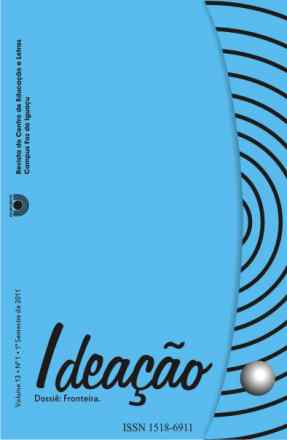LA EDUCACIÓN POPULAR EN LOS ESTADOS UNIDOS: LAS HUELLAS DE PAULO FREIRE Y MYLES HORTON
Ideação
LA EDUCACIÓN POPULAR EN LOS ESTADOS UNIDOS: LAS HUELLAS DE PAULO FREIRE Y MYLES HORTON
Autor Correspondente: Roberto Elisalde | [email protected]
Palavras-chave: Educación Popular, Freire, Horton
Resumos Cadastrados
Resumo Inglês:
This work is located in the field of history and education. It seeks to reconstruct one of the processes least traveled by the tradition of Latin American and North American popular education. In this case, to rescue links, similarities, encounters and differences of two conceptions and referents of popular education: Paulo Freire and Myles Horton. Freire, during his long exile in the 1960s and 1970s, was repeatedly invited to the United States. There I carried out exchanges in which he presented and debated with North American peers about the possibilities of interpreting and "applying" the ideas of "Pedagogy of the oppressed" in first world territories ". Harvard, Massachusetts, Tennessee, Los Angeles were Freire's main stays. In some cases with short tours and in others, with the goal of returning to complete common work. This was the case with the historic American popular educator Myles Horton, creator of one of the most relevant movements in the history of American popular education, the Teennesse Highlander Center. It was common for both Horton and Freire in their presentations to be asked indiscriminately, "Is it possible to think popular education in the United States?" Can First World countries implement “popular tradition” strategies in their organizations and in their classrooms? Precisely these concerns, and above all, the historical reconstruction of these meetings will be the central axis of this work.
Resumo Espanhol:
El presente trabajo esta situado en el campo de la historia y la educación. Busca reconstruir uno de los procesos menos transitados por la tradición de la educación popular latinoamericana, y norteamericana. En este caso rescatar vínculos, similitudes, encuentros y diferencias de dos concepciones y referentes de la educación popular: Paulo Freire y Myles Horton. Freire durante su largo exilio de los años 60 y 70 fue invitado en reiteradas oportunidades a los Estados Unidos. Allí llevo a cabo intercambios en los que expuso y debatió con pares norteamericanos acerca de las posibilidades de interpretar y “aplicar” las ideas de “Pedagogía del oprimido “en territorios del primer mundo”. Harvard, Massachusetts, Tennessee, Los Ángeles fueron las principales estadías de Freire. En algunos casos con breves recorridos y en otros, con la meta de retornar para completar trabajos comunes. Así sucedió con el histórico educador popular norteamericano Myles Horton, creador de uno de los movimientos más relevantes en la historia de la educación popular de los EEUU, el Centro Highlander de Teennesse. Era corriente que a tanto a Horton como a Freire en sus presentaciones los participantes, indistinatmente, le preguntaran: “¿es posible pensar la educación popular en los Estados Unidos?” ¿Los países del Primer mundo pueden implementar estrategias de “tradición popular” en sus organizaciones y en sus aulas? Precisamente estas inquietudes, y sobre todo, la reconstrucción histórica de estos encuentros serán el eje central de este trabajo.

